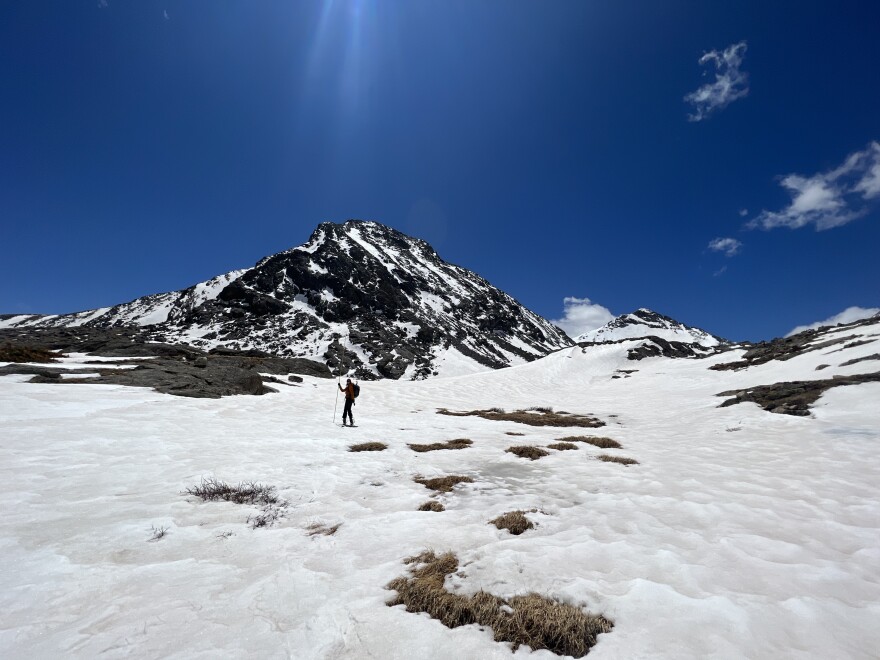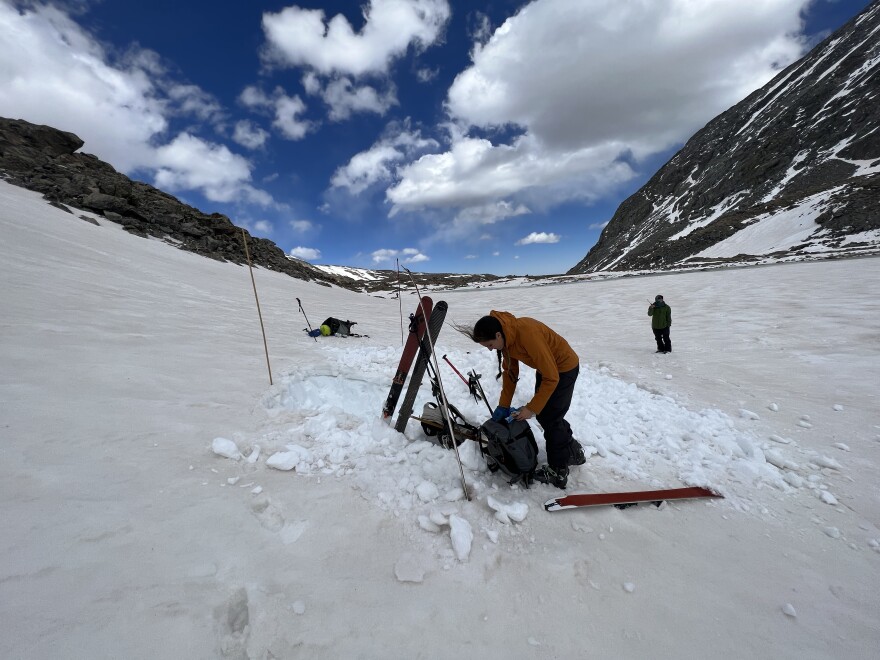A new study out of the University of Colorado Boulder shows that less snow is falling and snow is melting earlier in the Mountain West, a trend that has big implications for agricultural, wildfire risk and water supplies.
The study, which was published this week in the journal , found that from 1950 to 2013, the amount of water stored in snowpack significantly declined in more than 25% of mountain ranges in the Western U.S. and Canada, resulting from "substantially earlier snowmelt and rainfall in spring months, with additional declines in winter precipitation."

When it comes to snowpack and snowmelt, timing is everything, says Kate Hale, the study's lead author. Mountains act like a “water tower,” she says, storing snowpack that melts over the course of months and feeds the region's river systems. But as temperatures climb, those water towers are increasingly releasing water not in the early summer months – when farmers rely on it most – but earlier in the springtime.
“Not only is summer going to be more dry with decreased snow water storage, but the total amount of water that comes downstream will be decreased as well,” Hale said.
Hale added that while there are nuances to this, snowpack meltwater in March does not have the same effects on the landscape as meltwater in June.
“Water coming down in March, at least for now, is coming downstream at a time when the atmosphere and the surrounding vegetation doesn't need it,” she said. “Temperatures are still relatively low and less evaporation will occur and vegetation isn't quite turned on yet.”

Usually water managers check the on April 1 to determine how much water is available in snowpack, but it’s only a snapshot in time. With 60 years worth of data, Hale’s team was able to look at precipitation throughout the season as well as snowmelt, creating a more accurate picture of water availability.
She hopes her work raises a “red flag” around the actions politicians and water leaders need to take toward combating climate change.
“This work suggests a future and current need to shift the way in which we manage water based on the timing of availability,” she said. “A lot of places downstream of larger watersheds are also downstream of various reservoirs which operate on a certain cycle, and that cycle may need to change. And the way in which that changes is a large discussion to be had.”
This story was produced by the Mountain West ���ڱ��� Bureau, a collaboration between Wyoming Public Media, Nevada Public Radio, Boise State Public Radio in Idaho, KUNR in Nevada, the O'Connor Center for the Rocky Mountain West in Montana, KUNC in Colorado, KUNM in New Mexico, with support from affiliate stations across the region. Funding for the Mountain West ���ڱ��� Bureau is provided in part by the .






